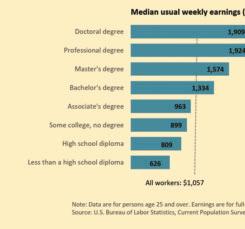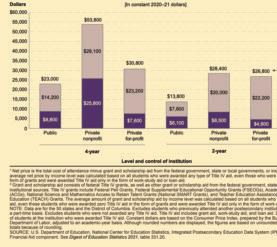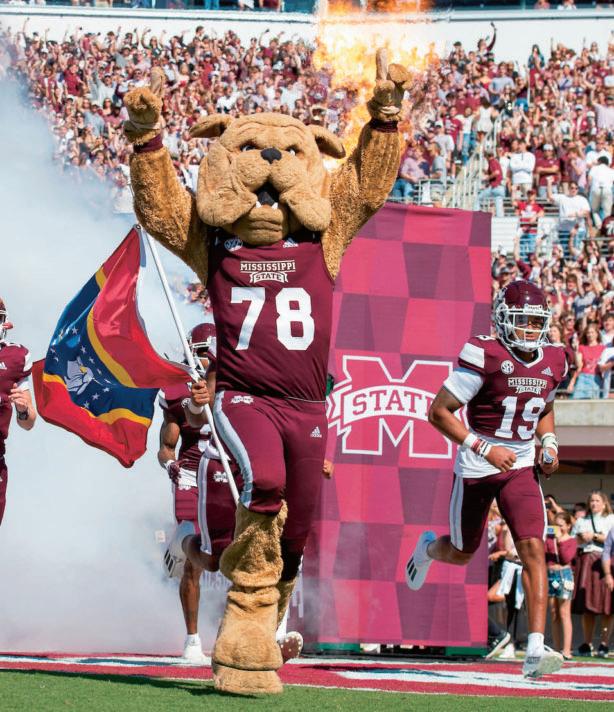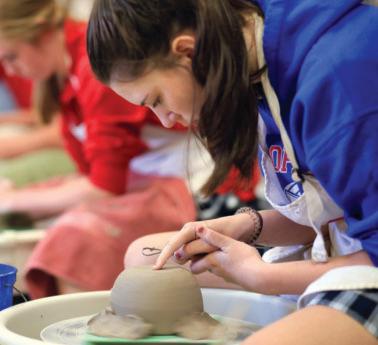








Rhodes College is consistently recognized as an exceptional place to learn, work, and live, making this year’s rankings no surprise.

U.S. News & World Report
2022-2023 Best Colleges
#23 Most Innovative among liberal arts colleges
#29 Best Undergraduate Teaching among liberal arts colleges
Forbes
One of America’s Top Colleges
The Princeton Review
A Best Value College
#20 Most Beautiful Campus
Green Colleges list for commitment to environment
Money’s Best Colleges
in America 2022
Quality, affordability, and student outcomes
DegreeChoices
#13 among liberal arts colleges for economic return
Stacker
Best Colleges in Big U.S. Cities
#2 Among Best Colleges in Tennessee

For new college students, transitioning into the next phase can be scary and somewhat shaky, albeit exciting. Between choosing the right school, deciding on the right career path, and adjusting to an unfamiliar environment filled with new peers, professors, and surroundings, the college experience can be difficult to adapt to. Once acclimated, however, students can begin to explore their interests while learning valuable skill sets, and they will often find the college experience and the journey to adulthood to be gratifying and fulfilling.
Receiving a degree is a rite of passage, and it will set graduates up for success in life after school. Graduates are more likely to find steady employment and receive higher income than their counterparts who did not receive a college education. e graphic shown below, from the U.S. Bureau of Labor Statistics, displays the correlation between education level and average earnings for people ages 25 and older in 2021.


A city that's a hub for tech innovation and outdoor exploration. A campus overflowing with opportunities, not obstacles. An academic experience led by expert professors who will get to know you and what you can accomplish. At UTC, we put you at the center of it all.

Choosing a career path at a young age is never easy — sometimes, it can take years to decide. Middle school is the perfect time to develop skills and interests by becoming involved in extracurricular activities as well as by practicing good study habits. By mastering these skills early, when children reach high school, they will be ready to finalize college plans by preparing for standardized tests, maintaining high GPAs, applying for colleges and scholarships, and more. Read below for a detailed step-by-step preparedness list that both the prospective college students and parents can consult to ensure optimal college readiness.
Junior high school is a time for feeling out skills and interests. Becoming involved in extracurricular school or community activities can help with that. Students are encouraged to develop strong study habits and test-taking adeptness. Parents should maintain in-depth communication with their child and their teachers, while actively saving for the child’s education.
◗ Think about college as an important part of your future. Discuss your thoughts and ideas with your family and with people at school.
◗ Start saving for college if you haven’t already.
◗ Take challenging and interesting classes to prepare for high school.
◗ Ask your parent or guardian to help you research which high schools or special programs will most benefit your interests.
◗ Develop strong study habits.

◗ Do your best in school and on standardized tests. If you are having difficulty, don’t give up — get help from a teacher, tutor, or mentor.
◗ Become involved in school- or community-based activities that let you explore your interests and learn new things.
Average total cost, net price and grant and scholarship aid for first-time, full-time degree/certificate-seeking undergraduate student awarded

◗ Speak with adults, such as your teacher, school counselor, librarian, relatives, or family friends, who you think have interesting jobs. Ask them, “What do you like about your job?” and “What education did you need for your job?”
PARENTS:
◗ Continue saving for your child’s college education. If you have not opened a savings account, learn about the tax advantages of saving and find a link to a clearinghouse of state college savings plans.
◗ Talk to your child about his or her interests and help match those interests with a college major and career.
◗ Help your child develop good study habits, such as finishing all work before going on social media or playing computer games.
◗ Stay in contact with your child’s teachers and counselors so that they can let you know about any changes in your child’s behavior or schoolwork.
◗ Keep an eye on your child’s grades on tests and report cards, and help him or her find tutoring assistance, if necessary.
It’s time to get serious about planning for college if you haven’t already. Students should be diligent with their schoolwork and grades, since maintaining a high grade point average (GPA) during this time will increase the chances for scholarships. Ask about taking more challenging courses and start actively searching for the college you’d like to attend. is will be a time for taking course-required standardized tests, applying for admission to colleges that interest you, and applying for any and all available scholarships. Parents should encourage their children to explore their academic and extracurricular interests while taking on new responsibilities outside of school.
9TH GRADE STUDENTS:
◗ Take challenging classes in core academic subjects. Most colleges require four years of English, at least three years of social studies (history, civics, geography, economics, etc.), three years of mathematics, and three years of science, and many require two years of a foreign language. Round out your course load with classes in computer science and the arts.
◗ Get involved in school- or community-based activities that interest you or let you explore career interests. Consider working, volunteering, and/or participating in academic enrichment programs, summer workshops, and camps with specialty focuses such as music, arts, or science. Remember — it’s quality (not quantity) that counts.
◗ Ask your guidance counselor or teachers what advanced placement courses are available, whether you are eligible, and how to enroll in them.
◗ Use the U.S. Department of Labor’s career search tool to research your career options.
◗ Start a list of your awards, honors, paid and volunteer work, and extracurricular activities. Update it throughout high school.
◗ Learn about managing your money.
PARENTS:
◗ Talk to your child about college plans as if they will definitely go to college.
◗ Keep an eye on your child’s study habits and grades — stay involved.
◗ Encourage your child to take advanced placement or other challenging classes.
◗ Add to your child’s college savings account regularly, and make sure you are fully aware of the provisions of the account.
◗ Meet with your school counselor or mentor to discuss colleges and their requirements.
◗ Consider taking a practice Preliminary SAT/National Merit Scholarship Qualifying Test (PSAT/NMSQT) or check out the ACT Aspire exam “sandbox.”
◗ Plan to use your summer wisely: Work, volunteer, or take a summer course (away or at a local college).
◗ Go to career information events to get a more detailed look at career options.
◗ Research majors that might be a good fit with your interests and goals.
PARENTS:
◗ Find out whether your child’s school has college nights or financial aid nights. Plan to attend those events with your child.
◗ Help your child develop independence by encouraging them to take responsibility for balancing homework with any other activities or a part-time job.
ALL YEAR
◗ Explore careers and their earning potential in the Occupational Outlook Handbook (bls.gov/ooh).
◗ Learn about choosing a college and find a link to the free college search tool (studentaid.ed.gov/sa/prepare-for-college/ choosing-schools).
◗ Go to college fairs and college-preparation presentations by college representatives.
FALL
◗ Take the Preliminary SAT/National Merit Scholarship Qualifying Test (PSAT/NMSQT). You must take the test in the 11th grade to qualify for scholarships and programs associated with the National Merit Scholarship Program.
SPRING
◗ Register for and take exams for college admission. The standardized tests that many colleges require are the SAT, the SAT Subject Tests, and the ACT. Check with the colleges you are interested in to see what tests they require. Many colleges are making these tests optional for admission.
◗ Use the U.S. Department of Labor’s scholarship search (careerinfonet.org/scholarshipsearch) to find scholarships for which you might want to apply. Some deadlines fall as early as the summer between 11th and 12th grades, so prepare now to submit applications soon.





◗ Create a username and password called an FSA ID that you’ll use to confirm your identity when accessing your government financial aid information and electronically signing your federal student aid documents. Note: You must create your own FSA ID; if your parent creates it for you, that’ll cause confusion later and will slow down the financial aid application process.
◗ Narrow down the list of colleges you are considering attending. If you can, visit the schools that interest you.
◗ Contact colleges to request information and applications for admission. Ask about financial aid, admission requirements, and deadlines.
◗ Decide whether you are going to apply under a particular college’s early-decision or early-action program. Be sure to learn about the program deadlines and requirements.
◗ Begin working on essays for admissions, update your resume, and think about the best candidates for letters of recommendation.
◗ Create your own FSA ID if you don’t have one yet. (The FSA ID is a username and password that you’ll use for such purposes as signing your child’s Free Application for Federal Student Aid.) Note: You must create your own FSA ID. If your child creates it for you, or if you create your child’s, that’ll cause confusion later and will slow down the financial aid application process.
◗ Take a look at your financial situation and be sure you’re on the right track to pay for college.
◗ Talk to your child about the schools they are considering. Ask why those schools appeal to your child and help them clarify goals and priorities.
◗ Attend college fairs with your child, but don’t take over the conversation with the college representatives. Just listen and let your child do the talking.
◗ Take your child to visit college campuses, preferably when classes are in session.
◗ Make sure your child is looking into or already has applied for scholarships.
◗ Ask your employer whether scholarships are available for employees’ children.

ALL YEAR:
◗ Work hard all the way to graduation — second-semester grades can affect scholarship eligibility.
◗ Stay involved in after-school activities and seek leadership roles if possible.
FALL:
◗ As soon as possible after its October 1st release, complete and submit your FAFSA form at fafsa.gov, along with any other financial aid applications your chosen school(s) may require. You should submit your FAFSA form by the earliest financial aid deadline of the schools to which you are applying, usually by early February.
◗ After you submit the FAFSA form, you should receive your Student Aid Report (SAR) within three days to three weeks. This document lists your answers to the questions on your FAFSA form and gives you some basic information about your aid eligibility. Quickly make any necessary corrections and submit them to the FAFSA processor.
◗ Meet with your school counselor to make sure you are on track to graduate and fulfill college admission requirements.
◗ If you haven’t done so already, register for and take the standardized tests required for college admission. Check with the colleges you are interested in to see what tests they require, if any.
◗ Apply to the colleges you have chosen. Prepare your applications carefully. Followthe instructions and pay close attention to deadlines.
◗ Well before your application deadlines, ask your counselor and teachers to submit required documents (e.g., transcript, letters of recommendation) to the colleges to which you’re applying.
SPRING:
◗ Visit colleges that have invited you to enroll.
◗ Review your college acceptances and compare the colleges’ financial aid offers.
◗ Contact a school’s financial aid office if you have questions about the aid that school has offered you. In fact, getting to know your financial aid staff early is a good idea no matter what — they can tell you about deadlines, other aid for which you might wish to apply, and important paperwork you might need to submit.
◗ When you decide which school you want to attend, notify that school of your commitment and submit any required financial deposit. Many schools require this notification and deposit by May 1st.
PARENTS:
◗ Work with your child on filling out the FAFSA. Further checklist items and additional college preparedness information can be found at studentaid.ed.gov






UPDATED 2023
You may have everything for college prepared — where you’re going, your roommate, your major, but you may be struggling with the financial part of your preparations. If your college savings can’t quite cover the costs of tuition, there are solutions to assist in your journey. One such solution for many Tennessee residents attending eligible in-state institutions is the Tennessee Education Lottery Scholarship Program.
e traditional HOPE Scholarship is available to graduating high school seniors who meet the minimum requirements.
e need-based HOPE Aspire supplemental award is available to those whose family’s adjusted gross income is $36,000 or less. e General Assembly Merit Scholarship (GAMS), also known as the HOPE Merit, is a merit-based supplemental award. e traditional HOPE Scholarship is awarded to entering college freshmen who meet the following requirements:
◗ Apply by completing the Free Application for Federal Student Aid (FAFSA), available at fafsa.gov. Applications must be received by September 1st for the fall semester or February 1st for the spring and summer semesters. Early application is recommended.
◗ Have been a Tennessee resident for at least one year prior to the application date.
◗ Graduate from a Tennessee eligible high school. Exceptions may be granted to Tennessee residents who meet certain criteria, including those who graduate from high schools located in bordering out-of-state counties, high schools in which dependents of active duty military or civilian workers of the U.S. Department of Defense, members of the Armed Forces or the Tennessee National Guard who are classified as an in-state student under the Tennessee Board of Regents, high schools in which dependents of full-time religious workers in foreign nations, and out-of-state boarding schools that are regionally accredited by the National Association of Independent Schools (NAIS)
◗ Enroll in one of the eligible Tennessee public colleges, universities, or private colleges (see list).
◗ Entering freshmen must achieve a minimum of a 21 on the ACT (or minimum of 1060 on the SAT), exclusive of the essay and optional subject area battery tests or have an overall weighted minimum 3.0 grade point average (GPA). Please note that because of Covid-19, many colleges have waived the requirement for standardized testing, such as the ACT or SAT. Check with the colleges you hope to attend for specific requirements. Also check with act.org for testing dates in the fall.
◗ The minimum average Revised GED score is 170.
◗ The minimum average HiSet score is 15.
UPDATED 2023
Austin Peay State University (003478)
Baptist Health Sciences University (034403)
Belmont University (003479)
Bethel University (003480)
Bryan College (003536)
Carson-Newman University (003481)
Chattanooga State Community College (003998)
Christian Brothers University (003482)
Cleveland State Community College (003999)
Columbia State Community
College (003483)
Cumberland University (003485)
Dyersburg State Community College (006835)
East Tennessee State University (003487)
ETSU - School of Pharmacy (E01254)
Fisk University (003490)
Freed-Hardeman University (003492)
Jackson State Community College (004937)
John A. Gupton College (008859)
Johnson University (003495)
King University (003496)
Knoxville College
Lane College (003499)
Lee University (003500)
◗ If required, ACT/SAT exams must be taken on a national test date or state test date prior to the first day of college enrollment after high school graduation. The ACT residual test and the ACT Superscore are not accepted.
◗ Must enroll within 16 months following high school graduation at any post-secondary institution. Enrollment at an ineligible post-secondary institution during the 16 months will make the student permanently ineligible. The HOPE Scholarship can be renewed annually if requirements continue to be met. Qualifying recipients who attend fouryear or two-year institutions with on-campus housing can receive up to $2,250 per full-time enrollment semester as a freshman and sophomore and up to $2,850 per full-time enrollment semester as a junior and senior.
Students who qualify for the HOPE Scholarship but decide to attend an out-of-state regionally accredited institution will not receive the award; however, if the student transfers back to a HOPE-eligible institution in Tennessee, the student may receive the award if he/she has met all academic and non-academic requirements while attending the out-of-state institution. Visit tn.gov/collegepays for more information.
Prospective students are encouraged to do their research and apply for all available scholarships and grants for which they qualify. Begin with filling out the FAFSA, which is used by colleges across the country to determine the amount of financial aid to award to students.
In addition to standard need- and merit-based awards, many schools offer scholarships based on academic achievement, area of study, and other more specific criteria. When choosing a school, be sure to ask about all available financial aid, what’s needed to qualify, and respective deadlines. While many students are eligible for an unsubsidized Stafford Loan regardless of income or circumstances, loans should be taken out only if necessary.
LeMoyne-Owen College (003501)
Lincoln Memorial University (003502)
Lipscomb University (003486)
Maryville College (003505)
Middle Tennessee State University (003510)
Milligan College (003511)
Motlow State Community College (006836)
Nashville State Community College (007534)
Northeast State Community College (005378)
Pellissippi State Community College (012693)
Rhodes College (003519)
Roane State Community College (009914)
South College (004938)
Southern Adventist University (003518)
Southwest Tennessee Community College (010439)
Tennessee State University (003522)
Tennessee Technological University (003523)
Tennessee Wesleyan University (003525)
Trevecca Nazarene University (003526)
Tusculum College (003527)
Union University (003528)
University of Memphis (003509)
University of Tennessee, Chattanooga (003529)
University of Tennessee,
Knoxville (003530)
University of Tennessee, Martin (003531)
University of Tennessee Health Science Center (006725)
University of TennesseeSouthern (003504)
University of the South (003534)
Vanderbilt University (003535)
Volunteer State Community College (009912)
Walters State Community College (008863)
Watkins College of Art and Design (031276)
Welch College (030018)
We’ll
 BY IZZY WOLLFARTH
BY IZZY WOLLFARTH
Dr. Sherry Turner shares with rising seniors and all students the value of diversity, equity, and inclusion in higher education. Along with informing students, Turner details her plan for maintaining an inclusive Rhodes College.
In your own words, what is DEI? How does it relate to education?
DEI stands for diversity, equity, and inclusion. However, there are many other phrases and concepts that people use to talk about DEI. For example, sometimes people add the word justice, making the abbreviation JEDI. Other institutions also use the umbrella term, “inclusive excellence.” The terms and abbreviations have their own meaning and representation.
Starting with diversity, that represents the varying aspects of people’s identities and experiences. It includes things like race, gender, ethnicity, sexual orientation, gender expression, religion, language, country of origin, socioeconomic status, and more. It’s a term that captures the different ways that people are unique from each other.
Often when we talk about diversity on college campuses, we’re talking about numbers. Such as, what is the percentage of students of color in the student body or among the faculty, or what is the percentage of males as opposed to females? Equity is about a sense of fairness. Fairness means that people, regardless of their backgrounds or experiences, have access to the benefits that a college education has to offer.
An example that I give at Rhodes College is making sure that all students have the benefit of what a Rhodes education offers. Equity is our ability to look at various groups of people and ensure that they have an experience that’s consistent. It doesn’t mean that it’s all the same, but
it means that people have equal opportunities.
The next one is inclusion, and that’s a sense that everyone is welcome and embraced by their college while feeling like they belong. Belonging and inclusion often go hand in hand. That’s the attempt by institutions of higher education to ensure that there are experiences, groups, organizations, and a place that makes people feel welcome.
The term inclusive excellence is used in higher education to refer to a campus’ commitment to create an environment that is inclusive, diverse, and equitable. Finally, justice on college campuses speaks to making sure all students and people are treated fairly. Justice enables individuals to look back and correct any wrongs that might be impeding a student’s ability to enjoy the benefits of education.
For rising seniors or people who are already in college, how can they get involved and create a more inclusive environment in college?
For many students, once they get to college, they are dealing with very diverse communities for the first time. Students are living in proximity to people who might have a different racial or ethnic background, a different religious background, or a different sexual orientation. In this scenario, students must navigate what it means to be in a community that is diverse, which is a challenge for a number of people. That discomfort, however, is what is most rewarding about colleges and universities because it is the opportunity to learn.
At many colleges there are workshops, speakers in the evenings, club events, social activities, and various opportunities for students to learn about the different groups in their communities. My recommendation is that students or incoming students make the effort to go to those free events and position themselves in a place where they can hear the voices, the opinions, the perspectives of people who are different from them. It’s okay to still go and sit in the back and just take everything in. But it’s also okay to ask questions in those forums and immerse yourself in something new.
What advice would you give to someone who wants to learn more about DEI but is hesitant or just unsure?
If someone is uncomfortable, there are so many ways to learn individually. Whether it is listening to podcasts, going to the library, and checking out books, or exposing yourself to those cultures and places that are new or different. In college, so much will be new to students but they will be learning and growing in so many ways all the time. I would make it a goal to be open to change and learn about these differences to learn more and grow.
I also want to highlight the work that student organizations do. I think about the work that clubs like sororities and independent organizations are doing to be more inclusive. In each of these organizations, there are students like rising seniors who are leading members with their words and actions. One thing that students might do if they are a bit more hesitant is to lean on peers for understanding.
Why is it important for colleges and universities to have DEI programs? How might the presence of these programs affect students later in life?
DEI programs are a great way to learn. Spending time with people with different experiences than yourself develops a sense of cultural humility. This means recognizing that it’s almost impossible to know everything about another culture or cultural group but being responsible for your own learning. This also means taking the time to say, “I recognize that I don’t know a lot about this particular group, but I am willing to learn.” Further, understanding and exposure to differences allows students to learn from their previous mistakes or misunderstandings and do better in the future
The world is becoming increasingly complex. Our need to engage, do business with, interact with, and build friendships or relationships with different groups has increased dramatically. This begs the ability to develop an understanding of different cultures around the world. It’s especially important for colleges and universities to ensure that their students are well equipped to do so. To go into the world and understand what makes people different and unique and have the flexibility, the knowledge, and the skill to do so is to interact effectively.
How do colleges and higher education institutions promote inclusivity and DEI in the classroom?
What I always advise at colleges and universities is that if DEI is important, then anyone should be able to see evidence of it no matter where they turn. Most affiliate themselves with a college based
When I came to Ole Miss, I wanted to just be myself. As an eager freshman, I immediately found a strong group of friends thank to the FASTrack Learning Community.



I love people and that same passion is what fuels my love for teaching. I have felt inspired by the young students I have worked with through the Mississippi Excellence in Teaching Program, and I can’t wait to continue helping to develop young minds in the future. Scan

on school colors, mascots, symbols, and even pep rallies. For diversity, equity, and inclusion, it should be the same.
For Rhodes that means providing assistance for persons who are hearing-impaired during class time or holding a graduation ceremony that is multilingual. In the classroom, inclusivity starts with having staff members and faculty members who are as diverse as your student body and who are equipped to support students once they arrive on campus. This then creates opportunities for students to engage with others who are different from them with grace and understanding.
When rising seniors are applying to colleges, how can they know if their college is inclusive and right for them?
One thing that rising seniors can do is go to sites like College Navigator. With this website, incoming college students can look up information about the diversity of the student body. For information regarding specific schools, students can also research information about clubs and organizations at colleges of their interest. Aside from online research, what is most important is visiting colleges if students are able to. This helps seniors get a feel for each college through their interactions with college students and faculty. It also gives them the opportunity to see whether the college offers things that are important to them.
Aside from just diversity, college is about developing a sense of who you are and what is important to you. In other words, do you feel that you can find a community here if you are a Dungeons and Dragons buff? Is there a group that you can connect with? Can you find other people like you? Sometimes it’s about looking for organizations, but it’s also about looking for a community that you’ve got something in common with.
Has there been an increase in inclusivity measures among universities and colleges over the years?
There has been an increase, but to be candid, most colleges and universities focus on increasing the number of diverse students. What has been more difficult for campuses is to build a sense of community. An example we often use is to imagine throwing a party and sending out invitations. Diversity, which is about numbers, is ensuring that everyone who receives an invitation comes to the party. However, inclusion is about making sure that everyone who attends the party has a good time once they arrive.
Many colleges and universities focus on increasing the numbers without focusing on what when students of diverse identities arrive. They have trouble ensuring that these students feel welcomed and valued. For a college to be inclusive it takes planning, resources, and expertise.
It goes beyond just hoping that diversity leads to more inclusive practices.
What measures does Rhodes take to ensure the safety of their students? In other words, how do they protect students from hate or discrimination?
Rhodes has a number of affinity groups for students and organizations. For example, there’s an organization for LGBTQ+ students, another for Latinx students, and more for various identities. What Rhodes tries to do is make sure that students are able to find a community among themselves and connect with others who are like them. In addition to students’ own exploration, Rhodes connects students with faculty and staff who are great mentors and advisors or if needed, connects students with outside communities.
The other approach that Rhodes takes is through our education system. During the first year that students arrive, Rhodes takes them to the National Civil Rights Museum as a way of beginning a conversation. This gives students the opportunity to be exposed to the culture of the world around them. In terms of coursework, students enroll in first-year seminars where they participate in sometimes difficult conversations. The other important thing we do is recognize that there are offenses that take place within the community. Thus, we have a bias education process that allows people to talk through those challenges and issues with professionals.
How have you improved inclusivity at Rhodes College or at other universities during your professional career?
I’m a Rhodes graduate and I know that Rhodes was thinking about diversity years before I arrived here. When I came, I was hired first as a consultant, then as the chief diversity officer, and finally the vice president for strategic initiatives. What I have seen as my major contribution to this work is helping the college think strategically about how it wants to grow in areas of diversity, equity, and inclusion. This means making sure that faculty and staff understand the roles they play in creating an equitable environment. Predominantly, I help the college achieve this goal by creating a three-year plan that addresses some of the DEI issues that are important.
Addressing problems relating to DEI entails hard conversations and hard decisions that colleges and universities have to discuss. I see my role as a help to colleges and universities when they have to ask and answer those difficult questions. Further, I see myself as someone who has the ability to recognize challenges and give guidance. In these difficult scenarios, I help come up with solutions that fit the college best.
Currently Rhodes has something called the IDEAS Framework, a document that outlines some of our future plans. Recently, we heard concerns from students of color that there was no appropriate meeting or social space on campus where those students felt a sense of community. One of our goals listed in the IDEAS Framework was to build a multicultural or unity lodge for students. When building our newest housing space, East Village C, we then made sure to build that space for those students.
The other goal we had was to make sure that there were opportunities for different cultural groups to celebrate. Thus, for commencement we hold unique celebrations for different groups. We have the lavender celebration for LGBTQ+ students, celebrations for Asian and Pacific Islander students, one for African and students of African descent, and another for Latinx students. Building in those kinds of celebrations and being intentional with our choices gives everyone the opportunity to celebrate and learn with each other.
We recognize that for many students, this is the most diverse place they’ve been, and we want them to learn. These learning opportunities also come in the form of training for student positions like RAs and student leaders where they learn to be facilitators of DEI conversations.
What was your experience when applying to colleges? Were there aspects of higher education that were important to you?
My college experience was so different from what many students experience today. I was a first-generation student, so I was the first in my family to go to college. My college experience was very new to me. I didn’t know that I could look up statistics or do my own research. While I did understand the importance of feeling comfortable at my chosen college, I was very naive about how to do so.
The concept of there being a specific college for me is something that I did not fully understand. In the future, I realized that aside from my investment of money and time, I deserved a college that invested in me and my future. Being long out of college now, I always encourage students, if they can, to participate in activities that allow them to learn more about their potential schools firsthand. Having support from guidance counselors, advisors, teachers, parents, and others as students go through the college application process is also one of the most helpful tools when making college decisions.
Any extra tips or advice for rising seniors?
When applying to colleges, make sure that you’re looking at the systems, the policies, the procedures, the culture, and the climate of the place that will support you. Having the presence of DEI programs and feeling welcomed is what will lead students to gain a much richer and valuable experience.



Maybe you’re an undergraduate student looking for an academically excellent, Christ-centered university. Maybe you’re a working adult in Memphis looking to complete your bachelor’s degree, earn your graduate degree or prepare yourself for ministry. Whatever the case, Union University offers options in Jackson, or through our Memphis locations in Germantown and the Memphis College of Urban and Theological Studies in Midtown.
At Union University, you’ll be transformed by the renewing of your mind and be prepared for wherever God has called you to serve.



BEGIN YOUR JOURNEY TODAY AT uu.edu/memphis







According to Princeton University, a liberal arts education provides “intellectual grounding in all kinds of humanistic inquiry,” and according to the University of Memphis it creates “a diverse community of learners who seek change through increased knowledge and skill.” What does a liberal arts education look like to rising seniors? A liberal arts experience exceeds students’ expectations for higher education and yields a clear path to success in the professional world.
Choosing the right college is not an easy decision for most rising seniors. In preparation for their college decisions, seniors contemplate a college’s distance from their homes, tuition cost, accessibility, the institution’s reputation, and many other factors. What many students don’t consider until after college is how their education will impact them in their post-grad affairs. Institutions for higher education usually fall into three categories: a liberal arts education, a science-based education, or a specialized/vocational education. Although each type presents its own challenges and
benefits, liberal arts education prepares students the most for the professional world and their lives to come. e core of every liberal arts institution starts in the classroom, where education becomes multifaceted. In the classroom, students develop non-technical skills like communication, leadership, and teamwork that prepare them for the business world. Samuel Frank, a current senior at Rhodes College, says, “ rough my time at Rhodes, I have expanded my worldview through experiences in and outside of the classroom. Whether it’s taking courses in new disciplines, or completing internships, I found that the liberal arts experience is the ideal college experience for me.”
Similarly, Professor James Wallace at Christian Brothers University says, “A class in the liberal arts will foster civil discussion of topics we passionately disagree about.” Furthermore, Wallace says, “Encountering this diversity of thought and technique is one of the joys of a liberal education.” Overall, a typical day for a liberal arts institution means many small group discussions, the faculty’s commitment to student growth, various spaces for differing opinions, and opportunities for expression.
Aside from classroom experiences, a liberal arts education is essential to success in a student’s postgrad affairs. Michael Lind in his novel, Why the Liberal Arts Still Matter, says, “ e first thing that must be said about liberal education is that the word ‘liberal’ is misleading.” Instead, Lind says the liberal arts education promises “first and foremost, training for citizenship” and prepares “citizens for public life, whether as rulers or voters.” Developing the necessary ‘soft’ skills within the classroom helps students understand the discourse of public life.
A liberal arts education gives students the ability to walk into any room and connect with employers, coworkers, and peers around them. Marty Lang, an assistant film professor at the University of Memphis, says, “ e biggest benefit of a liberal arts education is the ability to think critically and communicate your thinking to others.” Lang also says, “So much of problem-solving lies in how people communicate, and I know that my own liberal arts education really helped me to explain my ideas to others.” e personal growth and skills that develop with the liberal arts education thus become essential for life after college.

While a liberal arts education grants students the tools for future success, the investment in a liberal arts education can be expensive. Many liberal arts institutions are private colleges, lacking state funds or price caps. Forbes notes that in 2019 the average price of many liberal arts institutions was $26,000 after grants and scholarships. e question for rising seniors’ families becomes: Is this education worth it?
Creating families together, Fertility Associates of Memphis is the only state-of-the-art practice providing comprehensive reproductive health care to couples of the Mid-South and beyond… treating patients struggling with infertility, recurrent pregnancy loss and reproductive disorders. Our highly specialized team utilizes cutting edge techniques including in vitro fertilization with laser blastocyst biopsy, preimplantation genetic diagnosis and fertility preservation. Our compassionate physicians, board-certified in reproductive endocrinology and infertility, have been bringing dreams to life for over 25 years.


Career readiness conducted a study showing that only 42 percent of employers are satisfied with recent college graduates’ written and verbal communication skills and only 33 percent find leadership qualities among job candidates.
To answer, career readiness conducted a study showing that only 42 percent of employers are satisfied with recent college graduates’ written and verbal communication skills and only 33 percent find leadership qualities among job candidates. Additional statistics from TestGorilla, an Amsterdam-based tech firm show that employers across the United States are looking for the soft skills most applicants are lacking. Without these skills, mostly learned through the liberal arts education, many job applicants are disappointing for hiring managers and job recruiters.
e investment in the liberal arts college thus becomes an investment in a student’s future and life after college.


Career readiness survey: https://www.insidehighered.com/ news/2018/02/23/study-students-believe-theyare-prepared-workplace-employers-disagree







Lifedoesn't waitfor changesinthe market–and youdon'thave toeither.
Lifedoesn't waitfor changesinthe market–and youdon'thave toeither.
Theexpertiseofa REALTOR®cancarry youfromlistingto moving,makingthe mostofeverymarket.
®
®
Theexpertiseofa REALTOR®cancarry youfromlistingto moving,makingthe mostofeverymarket.






Learnmoreat homememphis.org.
Learnmoreat homememphis.org.
Moore Tech
1200 Poplar Avenue (38104) | 726-1997 (main campus) mooretech.edu
ENROLLMENT: average of 395 students per trimester
TUITION: $235 per credit hour. Associate degree is $3,525 per trimester (most programs are 6 trimesters with some 3-trimester options). Diploma program is $2,820/trimester. Half-time tuition is $1,410/trimester. Night student tuition is $705/trimester. Additional fees may apply, depending on the program.
HOUSING: N/A
Christian Brothers University
650 East Parkway South (38104) | 321-3000 cbu.edu
ENROLLMENT: 1,730 total (undergrad, grad, adult)
Faculty: 9:1 student-to-faculty ratio
TUITION: $18,650 per semester
HOUSING: $4,570 per semester (room and board)
The College at Mid-America
2095 Appling Road, Cordova (38106) | 901-751-3060 collegeatmidamerica.com
ENROLLMENT: 159
FACULTY: 22
TUITION: $340/credit hour
HOUSING: Private apartments (no utilities): 1 bedroom: $627/month, 2 bedroom: $731/month, 3 bedroom: $815/month; Dorms: 1 bedroom, shared bath: $327/ month, master bedroom, private bath: $407/month
Gould’s Academy
PARK PLACE CAMPUS
1203 Ridgeway Road, Suite 203 (38119) | 767-6647
BARTLETT CAMPUS
8000 U.S. Highway 64, Suite 108 (38133) | 842-1772 gouldsacademy.com
ENROLLMENT: 300 (combined, Fall 2021)
FACULTY: 12 educators at Ridgeway academy; 10 educators at Bartlett academy
TUITION: Cosmetology: $22,650 for books, kits, and fees; Barber School: $18,650 for books, kits, and fees; Nail Tech: $9,550 for books, kits, and fees; Esthetician/ Skin Care: $13,775 for books, kits, and fees; Massage Therapist: $12,190 for books, kits, and fees; Instructor: $5,650 for tuition, books, kits, and fees
HOUSING: N/A
LeMoyne-Owen College
807 Walker Avenue (38126) | 435-1000 loc.edu
ENROLLMENT: 609 (Fall 2022)
FACULTY: 50 full-time, 54 part-time (Fall 2022)
TUITION: $6,038 (full-time): $449 per credit hour (parttime/fewer than 12 credit hours); Over-time (greater than 18 credit hours): $6,038 plus $449 per each additional credit hour
HOUSING: Double occupancy: $1,800; Single occupancy: $2,200; Single occupancy of a double room: $3,600; Meal plan (required for all residents): $1,250
PROGRAMS: Automobile Technology, HVAC, Industrial Electricity, Plant Maintenance, Plumbing, Property Maintenance, Machining, and Welding.
Northwest Mississippi Community College
SENATOBIA CAMPUS – MAIN CAMPUS
4975 Highway 51 N., Senatobia, MS (38668) | (662) 562-3200
DESOTO CENTER CAMPUS
5197 W.E. Ross Parkway W., Southaven, MS (38671) | (662) 342-1570
LAFAYETTE-YALOBUSHA TECHNICAL CENTER CAMPUS
1310 Belk Drive, Oxford, MS (38655) | (662) 236-2023 northwestms.edu
ENROLLMENT: 7,092 (combined, Spring 2023)
FACULTY: 204 full-time; 107 part-time
TUITION: $1,600/semester (full-time, in-state student); $2,800/semester (full-time, out-of-state student); $50 registration fee/semester and $45 technology fee/semester
HOUSING: $750-$1,100/semester (Senatobia campus only)
Rhodes College
2000 North Parkway (38112) | 843-3700 (Admission) rhodes.edu
ENROLLMENT: 2000+ undergraduate and graduate students
FACULTY: 195
TUITION: $54,082 per year
HOUSING: $12,910 per year
Southwest Tennessee Community College
737 Union (38103) / 5983 Macon Cove (38134) | 333-5000 southwest.tn.edu
ENROLLMENT: 7,174
FACULTY: 187 regular faculty, 283 adjunct faculty
TUITION: $2,179 (in-state); $8,467 (out-of-state)
HOUSING: N/A
Union University
Germantown campus – 2745 Hacks Cross Road (38138) | 759-0029
uu.edu/germantown
ENROLLMENT: 3,357
FACULTY: 9:1 student-to-faculty ratio
TUITION: $37,000 per semester (traditional undergraduate)
HOUSING: $12,166 per semester (traditional undergraduate/Jackson campus)
University of Memphis
3729 Alumni Avenue (38152) | 678-2000
COLLIERVILLE CENTER 215 W. Poplar, Collierville (38017) | 678-5515
MILLINGTON CENTER 6500 Navy Road, Millington (38053) | 678-4171
memphis.edu
ENROLLMENT: 21,917 undergraduates and graduates
FACULTY: 895 full-time instructional staff, 431 part-time instructional staff
TUITION & FEES: $8,352 for in-state undergraduates
HOUSING: Typical double-occupancy room charge: $6,050; Typical cost for board: $4,340
University of Memphis
Cecil C. Humphreys School of Law
1 N. Front Street (38103) | 678-2421
memphis.edu/law
ENROLLMENT: 314 (Fall 2022)
FACULTY: 25 full-time faculty and 21 part-time faculty
TUITION: $19,498 for full-time, in-state students
University of Mississippi - DeSoto
5197 W.E. Ross Parkway, Southaven, MS (38671) | 662-342-4765
olemiss.edu/desoto
ENROLLMENT: 200 (Fall 2022)
FACULTY: 21 full-time, 42 part-time/adjunct (fall 2021)
TUITION: $9,252 per year; $4,626 per semester (full-time undergraduate, in-state/non-resident) as of Fall 2023. Non-resident fee: $17,568 per year, $8,784 per semester (full-time graduate, in-state/non-resident) as of Fall 2023
HOUSING: N/A
Visible Music College
200 Madison Avenue (38103) | 381-3939 visible.edu
ENROLLMENT: 283
FACULTY: 33
UNDERGRADUATE Tuition: $22,000/year
HOUSING: $7,000/year
ACCREDITED ONE-YEAR CERTIFICATE PROGRAMS IN :
• Modern Music
• Music Business
• Creative Leadership
• Music Production
TUITION: in-person $12,500, online $8,500
GRADUATE PROGRAMS IN:
• Modern Music
• Music Business
• Creative Leadership
• Music Production
TUITION: $22,000 for the entire degree







Baptist Health Sciences University
1003 Monroe Avenue (38104) 575-2247
BaptistU.edu
ENROLLMENT: 797
FACULTY: 79
TUITION: $499/undergraduate credit hour; $673/graduate credit hour
HOUSING: $1,690 double occupancy, $2,790 single occupancy/trimester
Concorde Career College
5100 Poplar Avenue, Suite 132, Memphis, TN (38137) 901-881-2694
7900 Airways Boulevard, Suite 103, Southaven, MS (38671) 662-597-1131



concorde.edu
ENROLLMENT: 1,394 (Memphis); 345 (Southaven)
FACULTY: 35:1 student-to-faculty ratio (Memphis); 33:1 student-to-faculty ratio (Southaven)
TUITION: Varies by program; visit concorde.edu
HOUSING: N/A
METHODIST HEALTHCARE EDUCATION PROGRAM
Methodist University Hospital Schools of Radiologic and Imaging Sciences
1265 Union Avenue (38104) 516-8099
methodisthealth.org
SCHOOL OF RADIOLOGIC TECHNOLOGY
TUITION: $6,000 plus books/year ($12,000 for 2-year program)
ADVANCED MEDICAL IMAGING INTERNSHIP PROGRAM
TUITION: $1,000/3 months
DIAGNOSTIC MEDICAL SONOGRAPHY PROGRAM
TUITION: $10,500 plus books/15 months
Southern College of Optometry
1245 Madison Avenue (38104) 722-3200 sco.edu
ENROLLMENT: 527
FACULTY: 60
TUITION: varies for regional students (for more information, visit https://www.sco.edu/tuition-and-fees), $41,536 /year (non-regional)
HOUSING: N/A
University of Tennessee Health Science Center
910 Madison Avenue (38163) 448-5500 uthsc.edu
ENROLLMENT: 3,142 (statewide, Fall 2022)
FACULTY: 1,626 permanent and temporary (statewide, Fall 2022)
TUITION: $8,000-$35,000 (in-state); $10,000-$69,000 (out-of-state). For more information go to uthsc.edu/ finance/bursar/fees.php)
HOUSING: N/A







Serving

Cordova Showroom 8150 Macon Rd. Cordova, TN 38018 901.757.2465

Midtown Showroom

550 S. Cooper Memphis, TN 38104 901.274.6780
Bethel University
325 Cherry Avenue, McKenzie, TN (38201) 731-352-4000 bethelu.edu
ENROLLMENT: 3,119
FACULTY: 15:1 student-to-faculty ratio
TUITION: $16,222 full-time/academic year (undergraduate); $525/credit hour (MS in Criminal Justice); $631/credit hour (MBA); $518/credit hour (MA in Education); $13,750/semester (physician assistant)
HOUSING: $9,368 per semester
Harding School of Theology
1000 Cherry Road (38117) 432 - 7750 hst.edu
ENROLLMENT: 138 (Fall 2022)
FACULTY: 7 full-time
TUITION: $720/credit hour
HOUSING: $300-$785/month
Hours: Monday-Friday 8:30 am - 5:00 pm Saturday 9:00 am - 1:00 pm
Memphis Theological Seminary 168 E. Parkway South (38104) 334-5891 memphisseminary.edu
ENROLLMENT: 217
FACULTY: 10 full-time
TUITION: $640 per credit hour, scholarships available
HOUSING: N/A
Mid-South Christian College 3097 Knight Road (38181) 375-4400 midsouthchristian.edu
ENROLLMENT: 30
FACULTY: 11 full-time
TUITION: $300/credit hour + $1,000 in fees
HOUSING: $1,000/semester (+ $1,300 for food service)

Arkansas State University Mid-South (ASU Mid-South) 2000 W. Broadway Ave., West Memphis, AR (72301) 870-733-6722 asumidsouth.edu
ENROLLMENT: 1,077
FACULTY: 86 (39 full-time, 47 part time)
TUITION: $3,297 (in-state), $4,258 (out-of-state), $116 per credit hour (in-state), $156 per credit hour (out-of-state)
HOUSING: N/A
Belhaven University
TRIED-AND-TRUE RESTAURANT & BAR COVERAGE WITH NO SURPRISES. SMALL DETAILS. BIG DIFFERENCE.
Long-standing industry expertise means that nobody understands the unique challenges of protecting your hospitality business better than Society Insurance. Offering tried-and-true specialized programs for every type of restaurant and bar establishment, we are proud to provide our comprehensive coverage to the Volunteer State.

1500 Peachtree St., Jackson, MS (39202) 601-968-5940 belhaven.edu
ENROLLMENT: 1,000 (traditional; does not include online)
FACULTY: 12:1 student-to-faculty ratio
TUITION: $14,400/semester, $28,800/year
HOUSING: $4,700/semester, $9,400/year
Belmont University
1900 Belmont Blvd., Nashville, TN (37212) | 615-460-6785 belmont.edu
ENROLLMENT: 8,910 (2022)
FACULTY: 12:1 student-to-faculty ratio
TUITION: $41,320/year
HOUSING: $14,290/year
www.gouldsalonspa.com






www.gouldsacademy.com www.luxebygoulds.com








A division of Women’s Care Center, MPLLC

MonaLisa Touch in-offi ce treatment Vaginal health is restored due to new collagen, elastin and vascularization.
For three generations, the Rices have handled divorce and family law matters in Memphis and across Tennessee. Their co-authored book, “The Complete Guide to Divorce Practice,” published by the American Bar Association, is recognized across the country as the national standard. After rigorous examination, contested case reviews, and recommendations from judges and fellow attorneys, both of the Rices are Board Certified in Family Law by the National Board of Trial Advocacy.
The Rices bring over 75 years of experience combined with up-to-date technology, including 128 bit encryption of client information and communication. Rice Law handles your family law matter with depth of experience including a team of nationally recognized attorneys and Advanced Certified Paralegals. Rice Law’s Tennessee Supreme Court Rule 31 listed mediators provide valuable insight into resolving your matter quickly.
Whether you find yourself dealing with divorce, mediation, custody, child support, domestic violence or any other matter involving family law, For more information on divorce, visit aboutdivorce.com or scan the code.

To talk to a lawyer about divorce, call 901-526-6701.
Birmingham-Southern College
900 Arkadelphia Rd., Birmingham, AL (35254) 1-800-523-5793 bsc.edu

ENROLLMENT: 1,176
FACULTY: 110 full-time, 10-20 adjunct
TUITION: $10,625/semester or $21,250/year (includes required fees)
HOUSING: $13,600/year (room and board)
Delta State University
1003 W. Sunflower Road, Cleveland, MS (38733) | 1-800-GOTODSU deltastate.edu
ENROLLMENT: 2,556 (2022-2023)
FACULTY: 10:1 student-to-faculty ratio
TUITION: $4,217.50/semester (full-time undergraduate), $351/ credit hour (part-time undergraduate); $4,217.50 (full-time graduate), $469/credit hour (part-time graduate)
HOUSING: $2,000-$4,200/semester
Harding University
915 East Market Avenue Searcy, AR (72149) 501-279-4000 harding.edu
ENROLLMENT: 4,804
FACULTY: 328
TUITION: $24,240/year ($808/hour)
HOUSING: $4,684/year
John Brown University 2000 W. University Street, Siloam Springs, AR (72761) 479-524-9500 jbu.edu
ENROLLMENT: 2,459
FACULTY: 14:1 student-to-faculty ratio
TUITION: $29,720/year (with fees)
HOUSING: $9,816/year
Lyon College
2300 Highland Rd, Batesville, AR (72501) 870-307-7000 lyon.edu
ENROLLMENT: 495 (Fall 2022)
FACULTY: 15:1 student-to-faculty ratio
TUITION: $29,900 (+ fees)
HOUSING: $5,770 (+ $4,980 meal plan)
Millsaps College
1701 North State Street, Jackson, MS (39210) 601-974-1000 millsaps.edu
ENROLLMENT: 750
FACULTY: 9:1 student-to-faculty ratio
TUITION: $38,600
HOUSING: $14,210
Mississippi College 200 S. Capitol Street, Clinton, MS (39056) 601-925-3000 mc.edu
ENROLLMENT: 4,755
FACULTY: 192 (2022-2023)

TUITION: $21,098 (including fees, 2022-2023)
HOUSING: $11,818 (including meals)
Mississippi State University
Mississippi State, MS 39762 662-325-2323 msstate.edu
ENROLLMENT: 22,649 (Fall 2022)
FACULTY: 17:1 student-to-faculty ratio
Your family’s needs are our family’s business.
TUITION: $9,665/year (in-state), $26,430/year (out-of-state) for 2023-2024
HOUSING: $11,013/year for 2023-2024
Samford University
800 Lakeshore Drive, Birmingham, AL (35229) 205-726-2011





samford.edu
ENROLLMENT: 5,758 (fall 2021)
FACULTY: 14:1 ratio






TUITION: $36,724/year (full-time, undergraduate; fall 2022)
HOUSING: $11,626/semester
Philander Smith College

900 W. Daisy L. Gatson Bates Drive, Little Rock, AR (72202) 501-375-9845
philander.edu

ENROLLMENT: 1,000
FACULTY: 15:1 student to faculty ratio
TUITION: $12,864

Housing: $8,250
Tennessee Tech University
1 William L. Jones Drive, Cookeville, TN (38505) 931-372-3888
tntech.edu
ENROLLMENT: 9,902 (fall 2022)
FACULTY: 18:1 student-to-faculty ratio
TUITION: $5,261/semester (in-state); $7,361/semester (outof-state)
HOUSING: $3,024
Tennessee Wesleyan University
204 East College Street, Athens, TN (37303) 1-844-PickTWU
tnwesleyan.edu
ENROLLMENT: 999 (Spring 2022)

FACULTY: 73 full-time, 94 part-time (2020-2021)
TUITION: $27,350/year (undergraduate); $28,100/year (traditional nursing); $9,352/semester (dental hygiene)
HOUSING: $8,600-$10,440 (including meal plan)
University of Alabama
801 University Blvd., Tuscaloosa, AL (35487) 205-3485666 / 800-933-2262

ua.edu
ENROLLMENT: 38,645 (Fall 2022)
FACULTY: 1,583 full-time, 471 part-time

TUITION: $11,100/year (in-state), $31,460/year (out-of-state) (2022-2023)
HOUSING: $9,300 (2022-2023)
University of Arkansas
Fayetteville, AR (72701) 479-575-2000
uark.edu
ENROLLMENT: 29,068
FACULTY: 1,490
TUITION: $7,666 (in-state, undergraduate); $25,420 (outof-state, undergraduate)
HOUSING: $5,650/semester (includes boarding)
University of Mississippi (Ole Miss) University, MS (38677) 662-915-7226


olemiss.edu
ENROLLMENT: 22,300 (includes UMMC)
FACULTY: 1,355 (includes UMMC)
TUITION: $9,252 + required fees $160 (resident), $26,820 + required fees $160 (non-resident)
HOUSING: $6,840; food: $5,200

The University of Southern Mississippi
118 College Drive, Hattiesburg, MS (39406) 601-266-1000
usm.edu
ENROLLMENT: 13,526 (Fall 2022)
FACULTY: 687 (full-time), 174 (part-time)
TUITION: $4,670 in-state per semester; $5,670 out-ofstate per semester
HOUSING/RESIDENCE Halls: $2,446-$4,284 per semester; $2,225-2,350 meal plan
The University of Tennessee, Chattanooga
615 McCallie Avenue, Chattanooga, TN (37403) 423-425-4111

utc.edu
ENROLLMENT: 11,457 (Fall 2021)
FACULTY: 508 (full-time); 458 (part-time) (Fall 2021)
TUITION: $9,848/year (in-state, undergraduate); $13,880 (regional, undergraduate); $25,966 (out-of-state, undergraduate); $10,474 (in-state, graduate); $14,506 (regional, graduate); $18,538 (out-of-state graduate)
HOUSING: $6,347/year (based on doubleoccupancy average)
University of Tennessee, Knoxville Knoxville, TN (37996) 865-974-1000 utk.edu
ENROLLMENT: 31,701 (Fall 2021)
FACULTY: 17:1 student-to-faculty ratio
TUITION: $13,244/$31,664 (undergraduate, in-state/ out-of-state per year); $13,380/$31,798 (graduate, in-state/out-of-state per year); $20,168/$38,842 (law, in-state/out-of-state per year); $14,956/$27,638 (law flexible schedule, in-state/out-of-state per semester); $29,886/$56,152 (veterinary medicine, in-state/outof-state per year)
HOUSING: Visit https://housing.utk.edu/2022-2023-falland-spring-semester-rates/
The University of Tennessee at Martin
554 University Street, Martin, TN (38238) 731-881-7020 utm.edu
ENROLLMENT: 6,700 (Spring 2022)
FACULTY: 311 full-time (2021-22)
TUITION: $9,912/year (in-state, undergraduate, 2021-22); $15,952/year (out-of-state, undergraduate 2021-22)
HOUSING: $$9,782 (includes meal plan)
Vanderbilt University
2301 Vanderbilt Place, Nashville (37235) 615-322-7311 vanderbilt.edu

ENROLLMENT: 13,111 (Fall 2021)
FACULTY: 8:1 student-to-faculty ratio
TUITION: $54,840 (undergraduate, 2021-2022)
HOUSING: $18,376/year, including meal plan (2021-2022)
Webster University
470 E. Lockwood Avenue, Webster Groves, MO (63119) 800-981-9801 webster.edu
ENROLLMENT: 10,578 (Fall 2022)
FACULTY: 174 full-time, 1,053 adjunct (Fall 2022)
TUITION: $30,530/year
HOUSING: $2,350–$7,800/semester

Visit campus during fall preview days, Sept. 16 or Nov. 11. register at utm.edu/preview or schedule a campus tour at utm.edu/tour.
 Andre Brown ‘19 Whitehaven High School Graduate
Andre Brown ‘19 Whitehaven High School Graduate